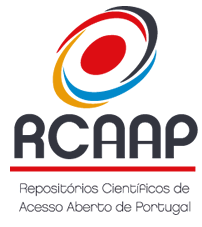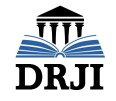Divorce, end or restart? Evaluations and perceptions above the Parenthood Workshops
DOI:
https://doi.org/10.5433/1679-0383.2021v42n1p99Keywords:
Divorce, Parenting, Family relations, Parent-child relationsAbstract
In the course of divorce/marital dissolution processes, parents may experience difficulties in dissociating parenthood from conjugality, involving children in their conflicts, which can be detrimental to the development of children and adolescents. With that in mind, on May 8, 2014, the National Council of Justice (CNJ), through Recommendation 050/14, instructed the country’s courts to adopt Parenting Workshops as a public policy for resolving and preventing family conflicts. In this sense, the present work aims to verify the immediate evaluations and perceptions of the parents who participated in the Parenting Workshops in a city in the Triângulo Mineiro (Minas Gerais, Brazil). This is a cross-sectional study supported by the mixed research approach that involved the participation of 78 parents. Quantitative data were described in percentages and qualitative data were analyzed using the content analysis technique. The results showed that, in the opinion of the parents, the Parenting Workshops constituted an important space for reflection, helping them to improve their family relationships, even though the marital conflict and the blaming of the ex-partner continue to predominate for some participants. As a public policy, the Parenting Workshops demonstrate that divorce does not mean the end of family relationships, but a new beginning.Downloads
References
BARDIN, L. Análise de conteúdo. Lisboa: Edições 70, 2009.
BOWEN, M. De la familia al individuo: la diferenciación del sí mismo em el sistema familiar. Barcelona: Paidos, 1979.
BÖING, E.; CREPALDI, M. A. Relação pais e filhos: compreendendo o interjogo das relações parentais e coparentais. Educar em Revista, Curitiba, n. 59, p. 17-33, 2016. Doi: https://doi.org/10.1590/0104-4060.44615. Disponível em: https://bit.ly/3uqofdk. Acesso em: 30 jun. 2020..
BRASIL. Ministério da Justiça. Conselho Nacional de Justiça. Oficina de pais e filhos: cartilha do instrutor: cartilha do instrutor. Brasília: CNJ, 2016. Disponível em: https://bit.ly/2WDLbYD. Acesso em: 29 jun. 2020.
BRASIL. Ministério da Justiça. Conselho Nacional de Justiça. Recomendação N. 50, de 08 de maio de 2014. Brasília: CNJ, 2014. Disponível em: https://bit.ly/2RcFYqp. Acesso em 29 jun. 2020.
BRITO, M. M.; SILVA, A. A. B. A mediação familiar e o fim do relacionamento conjugal: o problema do acesso à justiça e a experiência das oficinas de parentalidade. Revista de Formas Consensuais de Solução de Conflitos, Florianópolis, v. 3, n. 2, p. 19-36, 2017. Disponível em: https://bit.ly/3cQYFbr. Acesso em: 15 jan. 2020.
CANO, D. S.; GABARRA, L. M.; MORÉ, C. O.; CREPALDI, M. A. As transições familiares do divórcio ao recasamento no contexto brasileiro. Psicologia: Reflexão e Crítica, Porto Alegre, v. 22, n. 2, p. 214-222, 2009. Doi: http://dx.doi.org/10.1590/S0102-79722009000200007. Disponível em: https://bit.ly/2PI5GCL. Acesso em: 15 jan. 2020.
CATENACE, R. V.; SCAPIN, A. L. Síndrome da alienação parental: efeitos psicológicos gerados na tríade familiar pela síndrome da alienação parental. Revista Uningá Review, Maringá, v. 28, n. 1, p. 70-77, 2018. Disponível em: https://bit.ly/2Pxr6m9. Acesso em: 15 jan. 2020.
CRESWELL, J. W. Projeto de pesquisa métodos qualitativo, quantitativo e misto. Porto Alegre: Artmed, 2010.
GOMES, M. F. M.; PEREIRA, M. V. C.; RIBEIRO, E. J. Alienação Parental: Quando pais e crianças necessitam de ajuda. Millenium-Journal of Education, Technologies, and Health, Lisboa, n. 50, p. 283-291, 2016. Disponível em: https://bit.ly/3mmH1j4. Acesso em: 15 jan. 2020.
HAMEISTER, B. D. R.; BARBOSA, P. V.; WAGNER, A. Conjugalidade e parentalidade: uma revisão sistemática do efeito spillover. Arquivos Brasileiros de Psicologia, Rio de Janeiro, v. 67, n. 2, p. 140-155, 2015. Disponível em: https://bit.ly/324Xq2p. Acesso em: 15 jan. 2020.
JURAS, M. M.; COSTA, L. F. Não foi bom pai nem bom marido: conjugalidade e parentalidade em famílias separadas de baixa renda. Psicologia: Teoria e Pesquisa, Brasília, v. 32, n. 5, p. 1-9, 2016. Doi: http://dx.doi.org/10.1590/0102-3772e32ne215. Disponível em: https://bit.ly/3cV6PQ1. Acesso em: 15 jan. 2020.
JURAS, M. M.; COSTA, L. F. Uma proposta de atendimento psicossocial grupal com pais e mães separados. Interação em Psicologia, Curitiba, v. 22, n. 2, p. 133-138, 2018. Doi: http://dx.doi.org/10.5380/psi.v22i2.53252. Disponível em: https://bit.ly/3utwLrW. Acesso em: 15 jan. 2020.
KOSTULSKI, C. A.; CHRISTOFARI, G. C.; BLOSS, G. M.; PARABONI, D. M. A. Coparentalidade em famílias pós-divórcio: uma ação desenvolvida em um núcleo de práticas judiciárias. Pensando Famílias, Porto Alegre, v. 21, n. 2, p. 105-117, 2017. Disponível em: https://bit.ly/3wzXlS4. Acesso em: 29 Jun. 2020.
LAMELA, D; FIGUEIREDO, B. Coparenting after marital dissolution and children's mental health: a systematic review. Jornal de Pediatria, Porto Alegre, v. 92, n. 4, p. 331-342, 2016. Disponível em: https://bit.ly/3sZVrbs. Acesso em 15 Jun. 2020. https://doi.org/10.1016/j.jped.2015.09.011.
LEITE, D. E. M.; OLIVEIRA NETA, M. R. Síndrome da alienação parental-SAP: O Resultado de uma guerra familiar. Direito & Realidade, Monte Carmelo, v. 4, n. 2, p. 46-71, 2016. Disponível em: https://bit.ly/3wAk00u. Acesso em: 15 jan. 2020.
MENDES, J. A. A.; BUCHER-MALUSCHKE, J. S. N. F.; VASCONCELOS, D. F.; SOUZA, G. G.; COSTA, P. V. M. N. Perspectiva sistêmica: um olhar necessário para atuação dos atores jurídicos junto à disputa de guarda. Nova Perspectiva Sistêmica, São Paulo, v. 25, n. 54, p. 88-104, 2016. Disponível em: https://bit.ly/3dCPDy5. Acesso em: 15 jan. 2020.
MINAYO, M. C. Pesquisa social: teoria, método e criatividade. Petrópolis: Vozes, 2011.
MINUCHIN, P.; COLAPINTO, J.; MINUCHIN, S. Trabalhando com famílias pobres. Artmed, 1999.
MINUCHIN, P.; COLAPINTO, J.; MINUCHIN, S. O desafio de trabalhar com famílias de alto risco social: uma abordagem sistêmica. São Paulo: Roca, 2011.
MOTA, C. P. Individuação e coping em adolescentes de famílias tradicionais e divorciadas. Temas em Psicologia, Ribeirão Preto, v. 24, n. 3, p. 1115-1128, 2016. Disponível em: https://bit.ly/3fUtH3Y. Acesso em: 15 jan. 2020.
NEGRÃO, N. T.; GIACOMOZZI, A. I. A separação e disputa de guarda conflitiva e os prejuízos para os filhos. Liberabit, Lima, Perú, v. 21, n. 1, p. 103-114, 2015. Disponível em: https://bit.ly/3mnGI7D. Acesso em: 29 jun. 2020.
NÜSKE, J. P. F.; GRIGORIEFF, A. G. Alienação parental: complexidades despertadas no âmbito familiar. Pensando Famílias, Porto Alegre, v. 19, n. 1, p. 77-87, 2015. Disponível em: https://bit.ly/3wGsF1R. Acesso em: 15 jan. 2020.
OLIVEIRA, J. L. A. P.; CREPALDI, M. A. Relação entre o pai e os filhos após o divórcio: revisão integrativa da literatura. Actualidades en Psicología, San José, Costa Rica, v. 32, n. 124, p. 92-110, 2018. Disponível em: https://bit.ly/2Q2A4aA. Acesso em: 15 jan. 2020. http://dx.doi.org/10.15517/ap.v32i124.29021.
PONCIANO, E. L. T.; FÉRES-CARNEIRO, T. Conjugalidade, parentalidade e separação: repercussões no relacionamento pais e filhos(as). Psicologia em Estudo, Maringá, v. 22, n. 2, p. 277-287, 2017. Doi: https://doi.org/10.4025/psicolestud.v22i2.32808. Disponível em: https://bit.ly/2OqZaj3. Acesso em: 15 jan. 2020.
RAPIZO, R. Entre laços e nós: conversando sobre divórcio. Curitiba: Appris, 2020.
RAPIZO, R. Espaço de conversas sobre o divórcio: a diferença de posicionamento como recurso para transformação. Nova Perspectiva Sistêmica, São Paulo, v. 23, n. 50, p. 32-50, 2016. Disponível em: https://bit.ly/39NBSLX. Acesso em: 15 jan. 2020.
RASERA, E. F.; ROCHA, R. M. G. Sentidos sobre a prática grupal no contexto de saúde pública. Psicologia em Estudo, Maringá, v. 15, n. 1, p. 35-44, 2010. Disponível em: https://bit.ly/3uty5eo. Doi: http://dx.doi.org/10.1590/S1413-73722010000100005. Acesso em: 15 jan. 2020.
SILVA, L. M.; ARAGÃO, A. S.; SILVA, L. C. C. M.; JULIÃO, C. H.; LAVOR, M. D. D.; CHAGAS, L. M. O.; LIMA, A. J.; TERASSI, G.; MATA, J. J.; SILVA, L. D. L.; GOMES, L. C. S. Oficinas de Parentalidade. Participação, Brasília, n. 27, p. 18-26, 2015. Disponível em: https://bit.ly/2PxsQfb. Acesso em: 15 jan. 2020.
SILVA, L. D. L.; CHAPADEIRO. C. A. Rupturas e permanências o divórcio e suas reverberações na construção da parentalidade. 2019. Dissertação (Mestrado em Psicologia) - Universidade Federal do Triângulo Mineiro, Uberaba, 2019.
SILVA, L. D. L.; CHAPADEIRO, C. A.; ASSUMPCAO, M. C. O exercício da parentalidade após a dissolução conjugal: uma revisão integrativa. Pensando Famílias, Porto Alegre, v. 23, n. 1, p. 105-120, 2019. Disponível em: https://bit.ly/3wuCbVw. Acesso em: 15 jan. 2020.
SILVA, L. D. L.; CHAPADEIRO, C. A.; SILVA, L. M. A construção da parentalidade após a dissolução conjugal e as oficinas de parentalidade. Nova Perspectiva Sistêmica, São Paulo, v. 29, n. 66, p. 87-100, 2020. Doi: https://doi.org/10.38034/nps.v29i66.519. Disponível em: https://bit.ly/31Ts5PO. Acesso em: 29 jun. 2020.
SILVA, L. O.; OLIVEIRA, L. R. R. C.; SOARES, L. C. E. C.; RAPIZO, R. L. Diálogos com pais e mães separados: grupos reflexivos no sistema de justiça. Nova Perspectiva Sistêmica, São Paulo, v. 27, n. 62, p. 88-108, 2018. Doi: http://dx.doi.org/10.21452/2594-43632018v27n62a06. Disponível em: https://bit.ly/3moZtay. Acesso em: 15 jan. 2020.
TURATO, E. R. Tratado da metodologia da pesquisa clínico-qualitativa.3. ed. Petrópolis: Vozes, 2011.
WAGNER, A.; MOSMANN, C. Intervenções na conjugalidade: estratégias de resolução dos conflitos conjugais. In: BAPTISTA, M. N.; TEODORO, M. L. M. (Org.). Psicologia de família teoria, avaliação e intervenção. Porto Alegre: Artmed, 2013. p. 240-248
Downloads
Published
How to Cite
Issue
Section
License
Copyright (c) 2021 Semina: Ciências Sociais e Humanas

This work is licensed under a Creative Commons Attribution-NonCommercial 4.0 International License.
Semina: Ciências Sociais e Humanas adopts the CC-BY-NC license for its publications, the copyright being held by the author, in cases of republication we recommend that authors indicate first publication in this journal.
This license allows you to copy and redistribute the material in any medium or format, remix, transform and develop the material, as long as it is not for commercial purposes. And due credit must be given to the creator.
The opinions expressed by the authors of the articles are their sole responsibility.
The magazine reserves the right to make normative, orthographic and grammatical changes to the originals in order to maintain the cultured standard of the language and the credibility of the vehicle. However, it will respect the writing style of the authors. Changes, corrections or suggestions of a conceptual nature will be sent to the authors when necessary.

















